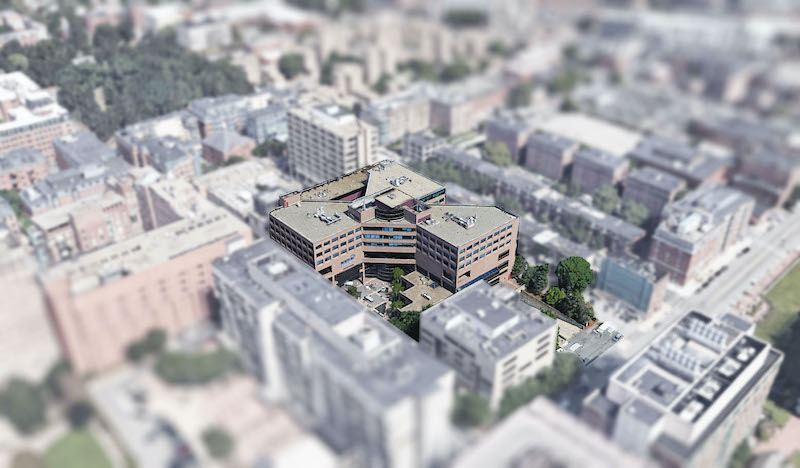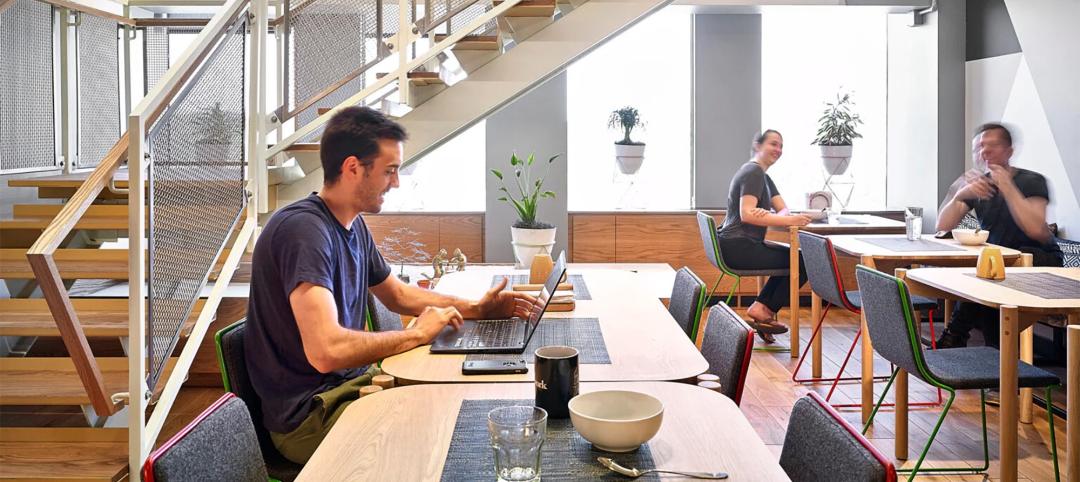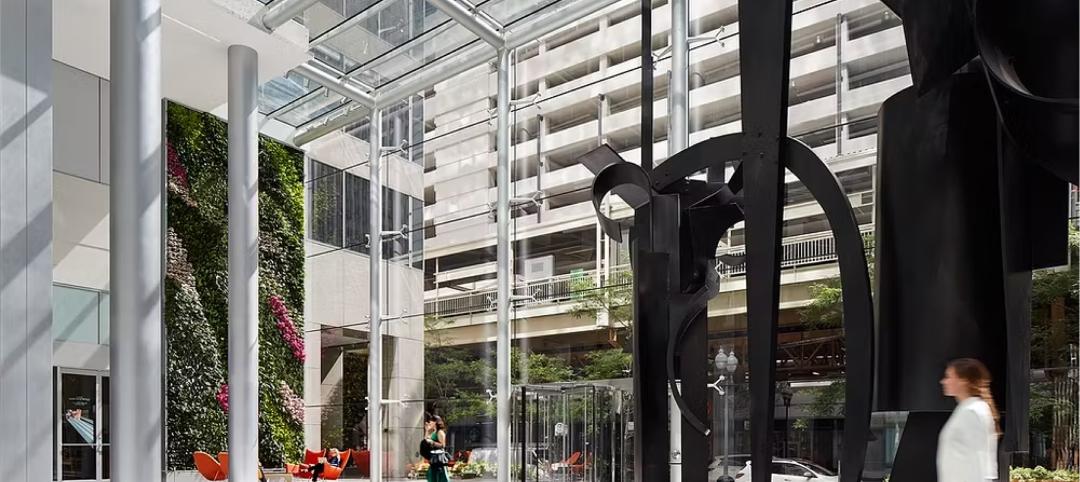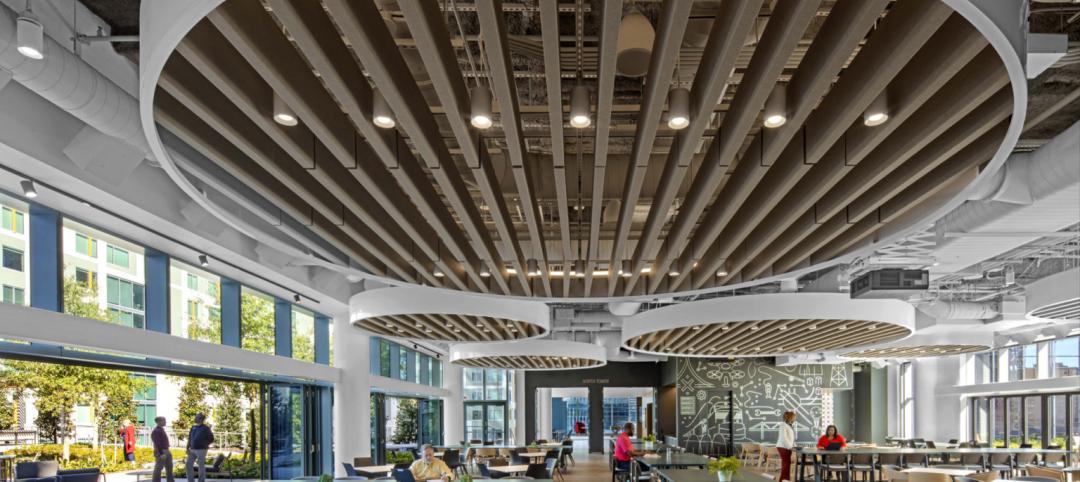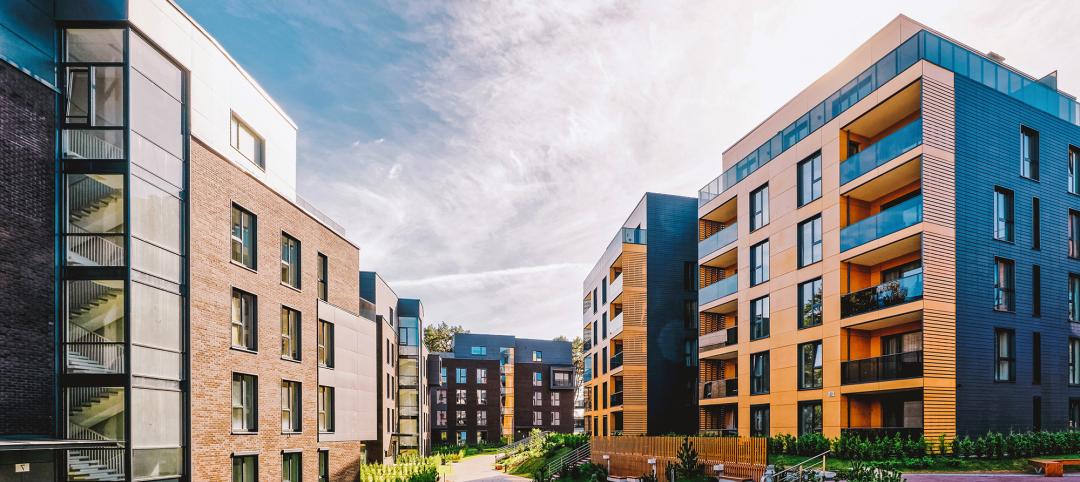The S/L/A/M Collaborative, Boston Studio (SLAM) and Gilbane Building Company (Gilbane), in partnership with the Massachusetts Division of Capital Asset Management & Maintenance (DCAMM), Boston Medical Center (BMC), Boston Healthcare for the Homeless, the Department of Public Health, led the technical planning, design and construction of a temporary quarantine shelter in response to the COVID-19 pandemic. The facility has a maximum capacity of up to 304 non-acute beds for Boston-area homeless at the former Newton Pavilion previously managed by Boston Medical Center at 88 E. Newton Street in Boston, MA.
The Newton Pavilion has been a shuttered hospital facility since October 29, 2018. SLAM and Gilbane were contracted by the current building owner, DCAMM, to assist them in assessing the building and devising an occupancy plan to convert the space for homeless patients who are not in need of acute hospitalization, yet test positive for the coronavirus, but are a-symptomatic or showing mild symptoms with orders to quarantine at home.
The coordination and focused effort to ready the Newton Pavilion for occupancy on April 9, 2020, required full-day meetings over a 28-day period held between DCAMM, BMC, Gilbane, and the SLAM design team, led by Senior Associate Loren Belida, AIA and Gilbane’s Senior Project Executive Jim Dabrowski. Following the Army Corps of Engineers review and swift approval of the occupancy plan demonstrating SLAM’s technical expertise and in-depth work in healthcare programming and planning, Gilbane was able to rapidly mobilize on-site and deliver the facility ahead of schedule.
“DCAMM was ahead of the curve when asked what it would take to temporarily re-open the “mothballed” facility” said Carol Gladstone, DCAMM Commissioner, “The project team quickly developed a very comprehensive and integrated execution plan that involved splitting construction scope between our internal team and Gilbane. I had extremely high confidence that we could rise to the challenge and deliver in a short timeframe.”
BMC will manage operations for the temporary facility and patient care will be administered by their clinical staff. The total re-occupied project area makes up approximately 166,500-square feet, spanning eight floors and the overall project scope includes the reactivation/upgrade to building systems including life safety, HVAC, fire protection, plumbing, fire protection, medical gasses, electrical and architectural upgrades.
“Gilbane is grateful for the opportunity to work on this critical project delivered by this incredibly dedicated team. Our team and subcontractor partners worked three shifts, working literally 24 hours a day to deliver this much-needed facility ahead of schedule. We’re honored to be of service to the Commonwealth and its citizens at this time of great need”, said Mike O’Brien, vice president, Massachusetts business unit leader.
SLAM and Gilbane have partnered on more than 40 projects throughout New England and across the country.
“The project team understood from day one that reinvigorating the space and systems of a “mothballed” hospital would require expertise, proactivity, coordination, and flexibility,” says Gabriel Comstock, AIA, lead healthcare planner and design architect, SLAM Boston Studio. “From the Commonwealth to the subcontractors, I’ve never seen a purer example of unyielding technical collaboration and speed to serve the most vulnerable populations at a more critical time in our community.”
Related Stories
Healthcare Facilities | Sep 8, 2023
Modern healthcare interiors: Healing and care from the outside in
CO Architects shares design tips for healthcare interiors, from front desk to patient rooms.
Codes and Standards | Jul 19, 2023
Office leasing in major markets by financial services firms rebounds to pre-pandemic norms
Though the pandemic led to reductions in office leasing by financial services firms in gateway markets, a recent report by JLL found a notable leasing resurgence by those firms.
Multifamily Housing | Jun 29, 2023
5 ways to rethink the future of multifamily development and design
The Gensler Research Institute’s investigation into the residential experience indicates a need for fresh perspectives on residential design and development, challenging norms, and raising the bar.
Office Buildings | Jun 28, 2023
When office-to-residential conversion works
The cost and design challenges involved with office-to-residential conversions can be daunting; designers need to devise creative uses to fully utilize the space.
Arenas | May 18, 2023
How can we reimagine live sports experiences?
A Gensler survey finds what sports fans' experiences have been like returning to arenas, and their expectations going forward.
Headquarters | May 15, 2023
The new definition of Class A property
Dan Cheetham, Managing Director and Founder of FYOOG, believes organizations returning to a "hub and spoke" model could have a profound effect on properties once considered Class B.
Office Buildings | May 5, 2023
9 workplace design trends for 2023
HOK Director of WorkPlace Kay Sargent and Director of Interiors Tom Polucci discuss the trends shaping office design in 2023.
Multifamily Housing | Apr 4, 2023
Acing your multifamily housing amenities for the modern renter
Eighty-seven percent of residents consider amenities when signing or renewing a lease. Here are three essential amenity areas to focus on, according to market research and trends.
Urban Planning | Mar 16, 2023
Three interconnected solutions for 'saving' urban centers
Gensler Co-CEO Andy Cohen explores how the global pandemic affected city life, and gives three solutions for revitalizing these urban centers.
Laboratories | Mar 9, 2023
5 laboratory design choices that accelerate scientific discovery
Stephen Blair, director of CannonDesign's Science & Technology Practice, identifies five important design strategies to make the most out of our research laboratories.


